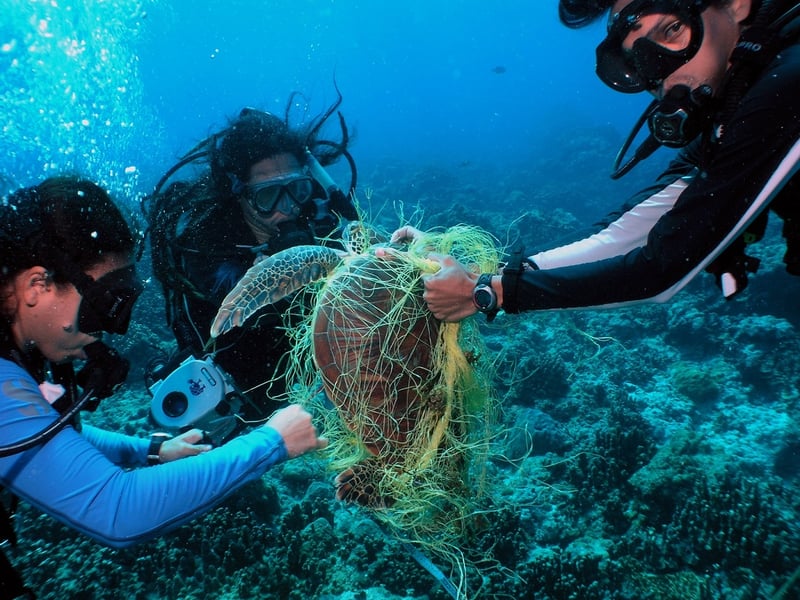
UN report finds more sea animal species harmed by marine debris
News
A new United Nations report, shows that the number of animal species affected by marine debris (including microplastics, and lost or abandoned fishing gear) is on the increase.
With the study showing that more than 800 animal species are negatively affected by litter in our seas, representing a 23 per cent increase in the total number of species affected since 2012.
You just need to take a walk on a beach anywhere in the world to see that the scale of the marine debris problem is staggering. It’s clear that now is time for action to address this growing catastrophe.
An estimated 10% of all marine debris is lost or abandoned fishing gear (known as ghost gear), comprised mainly of nets, ropes, lines and traps made of robust plastic materials that have ended up discarded in our seas and oceans.
This floating ‘ghost gear’ is often difficult to retrieve and equally problematic to dispose of, so in many areas there is a devastating build-up of old fishing gear which continues to fish for decades, posing a real threat to wildlife. The new research claims that 40 per cent of whales, dolphins and porpoises and 44 per cent of seabird species are affected by marine debris ingestion, with others facing entanglement and, often, death.
While this animal impact is sobering enough, the report also highlights the effect of marine debris on countries’ economies and community livelihoods. The cost of coastal clean-ups, damaged vessels and contaminated or lost catch for fishermen poses a significant risk to communities who depend upon the ocean for their livelihood, whether this is through tourism or fishing.
World Animal Protection has been collaborating with NGOs, academics, governments, policy-makers and the fishing industry through the Global Ghost Gear Initiative (GGGI) to translate dialogue about sustainable sea solutions into tangible actions that can benefit our oceans.
With the eye-watering figure of pollution from marine debris placed at $13 billion it’s clear that now is the time for multi-stakeholder initiatives such as the GGGI to stem the tide of plastic debris. We all have a role to play in raising awareness of the staggering impact of this menace on our wildlife.
Ahead of the first ever global United Nations Oceans Conference, World Animal Protection has also been working with UN Member States to highlight the urgent actions needed to address the global issue of ghost gear.
At this major event planned for World Oceans Day 2017, countries will be asked to commit to tangible steps that they will take to reduce marine litter of all kinds, including ghost gear, by 2025.
Image Credit David Burdick Marine Photobank